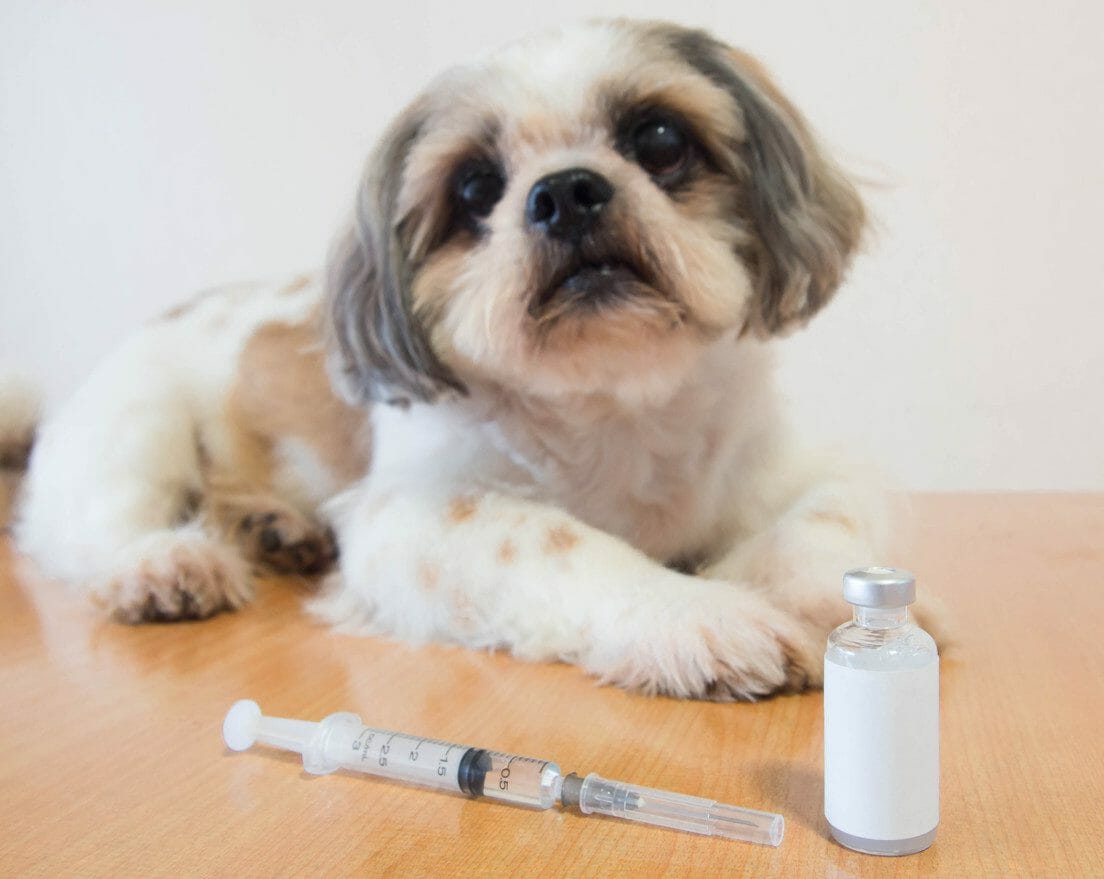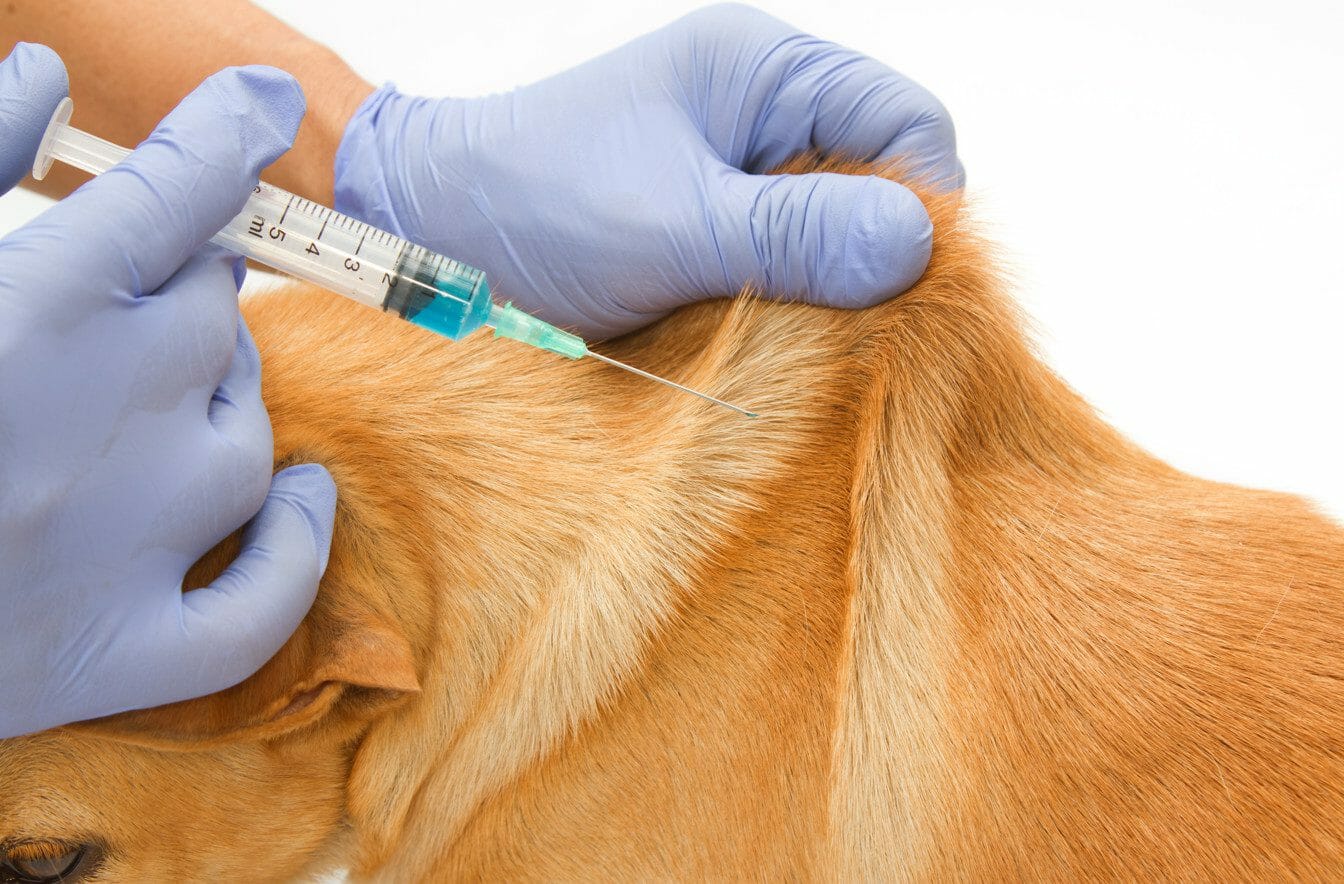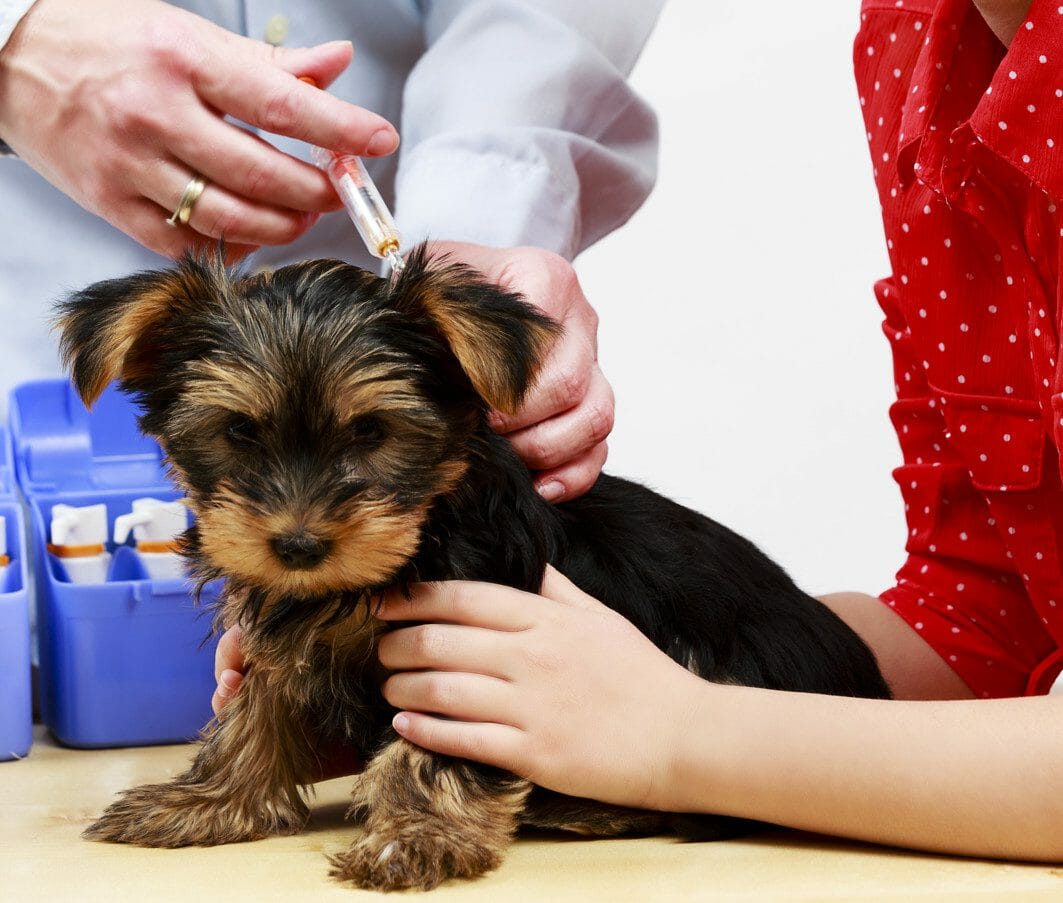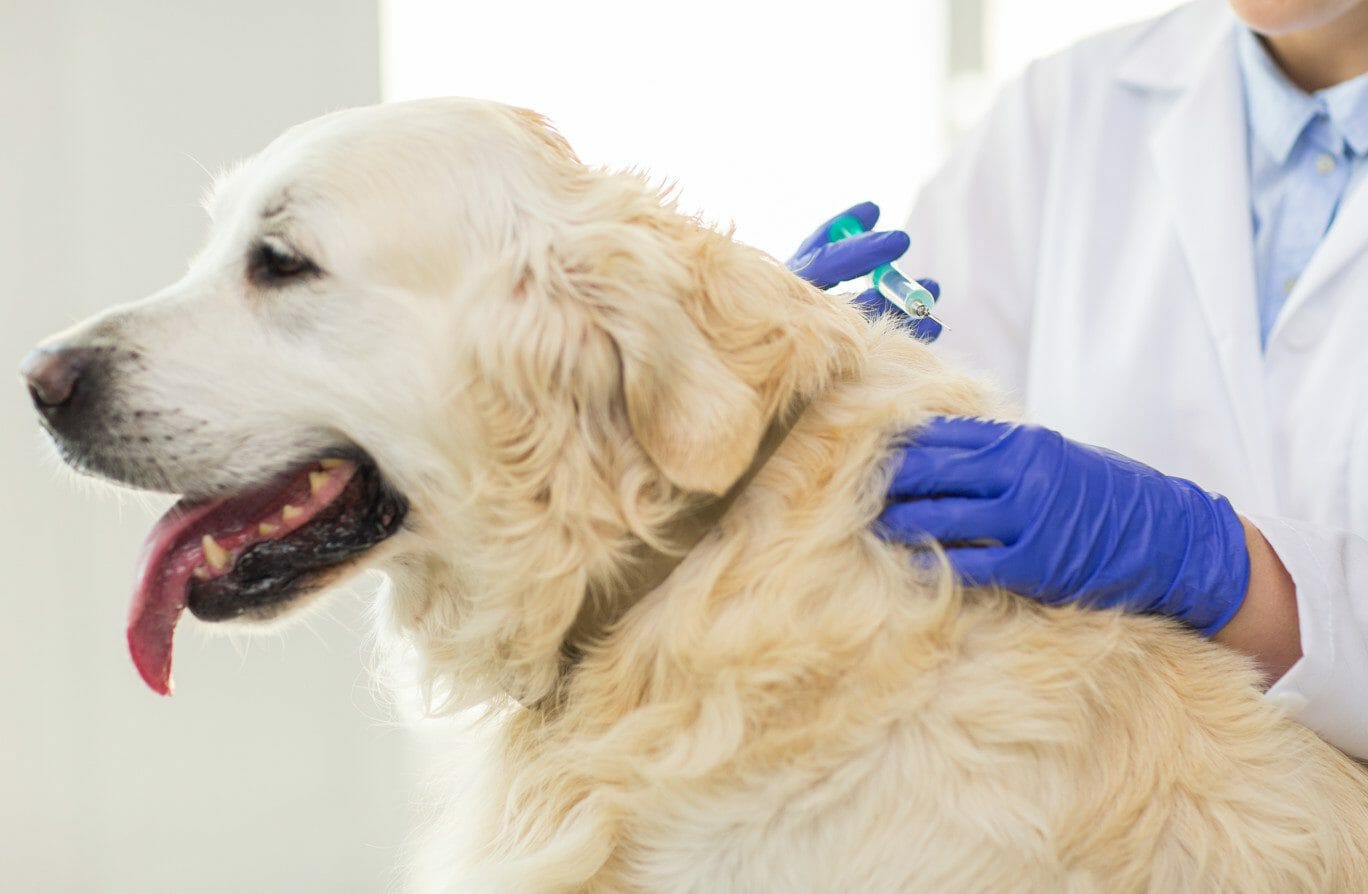How Do Dog Vaccinations Work?
Dog vaccinations are essential for the prevention of dangerous and life-threatening diseases. Many core vaccines for dogs also stop the further spread of such diseases. Although vaccines may not always provide 100% protection, they are effective in most cases and are an essential step in maintaining a dog’s health.
Vaccines help a dog’s immune system prepare for any invading viruses that may be encountered. Each vaccination is made up of specific antigens that look like the organism that causes a particular disease. When a dog is exposed to these, its immune system is activated, and it will develop immunity to the organism.
If the dog is ever exposed to this disease-causing organism in the future, its immune system will recognize it and will be able to release the necessary antibodies to fight the infection, thereby reducing the severity of the illness.

What Vaccines Do Dogs Need?
Many new owners ask “which dog vaccines are absolutely necessary?” With so many different potential illnesses, knowing which poses the greatest threat to a dog is important. Not only are there a variety of different vaccinations available for dogs, but there are also several combinations.
Vaccinations should be given to a puppy while they are still young, and then boosters should be administered by a veterinarian periodically throughout the dog’s life. Here is an overview of the dog vaccines list.
Bordetella Vaccine for Dogs
Bordetella Bronchiseptica is a very infectious bacterium that is responsible for bringing on severe coughing fits and vomiting. In some rare cases, it can lead to seizures and death. Bordetella is responsible for kennel cough.
To prevent dogs catching this disease, injections and nasal spray vaccines can be given. A dog vaccination record that provides evidence that this vaccine has been administered is often a requirement of boarding kennels, daycare centers, and training classes.
Rabies Vaccine for Dogs
Rabies is a disease that affects the central nervous system of the dog, bringing on the following symptoms:
- Hallucinations
- Drooling
- Anxiety
- Headaches
- Paralysis
Rabies is almost always fatal. The disease is generally transmitted through being bitten by a rabid animal. It is essential that any dog that has been bitten is treated within hours of infection, otherwise the dog may die. Rabies vaccinations are a requirement in most states, and it is advisable that all dogs receive the vaccine for this condition.

Parvo Vaccine for Dogs
To prevent this highly contagious virus that can affect all dogs, Parvo vaccines should be given to dogs while they are still a puppy as they will be most at risk until the age of four months.
Parvo attacks the gastrointestinal system bringing on:
- Vomiting
- Fever
- Loss of appetite
- Bloody diarrhea
The virus can also lead to severe dehydration and can kill a dog in as little as two to three days. There is no cure for parvo, so managing the symptoms is important while the dog’s immune system fights the disease. Many owners ask “can a dog get Parvo if vaccinated?” The short answer is yes, although the dog will stand a much greater chance of recovery if they have received the vaccine.
Leptospirosis Vaccine for Dogs
The zoonotic disease, Leptospirosis, often shows no symptoms at all and can spread from animals to humans. Some or all of these symptoms might occur:
- Vomiting
- Fever
- Diarrhea
- Lethargy
- Jaundice
- Muscular pain
- Loss of appetite
- Kidney failure
The disease can be treated with antibiotics, which should be given as early as possible for the best results. If a dog is vaccinated, it will greatly reduce the risks associated with this disease.

Lyme Disease Vaccine for Dogs
Unlike when humans are exposed to Lyme disease, dogs do not get a rash. This tick-borne disease is caused by spirochete bacteria. Symptoms of Lyme disease are:
- Limping
- Swollen lymph nodes
- High temperature
- Loss of appetite
Lyme disease can affect a dog’s joints, kidney, and heart. If it remains untreated, it can result in neurological disorders. Treatment using antibiotics can be helpful, although relapses may occur throughout the dog’s life. Being vaccinated for this disease will lessen the chances of the dog developing symptoms and will make fighting infection easier.
Coronavirus Vaccine for Dogs
Unlike the human coronavirus COVID-19, canine coronavirus attacks the dog’s gastrointestinal systems and can also bring on respiratory infections. Symptoms of the virus are:
- Vomiting
- Diarrhea
- Loss of appetite
There are no drugs that kill canine coronavirus. However, if dogs are vaccinated, this will ensure that symptoms are minimal.

Distemper Vaccine for Dogs
Canine distemper is a contagious disease that causes issues in the gastrointestinal, respiratory, and nervous systems of dogs. The virus is airborne, meaning that it spreads through the coughs and sneezes of infected animals. Another way that the virus spreads is through contact with shared bowls. Signs include:
- Fever
- Coughing
- Vomiting
- Diarrhea
- Twitching
- Discharge around the eyes and nose
- Paralysis
In some cases, the disease can be fatal. Often referred to as “hard pad,” the disease causes hardening and thickening of the footpad. As there is no distemper cure, treatment is largely geared towards minimizing symptoms and preventing secondary infections. Once infected, the dog can continue to shed the virus for several months.

Yearly Dog Vaccines
Throughout the dog’s life, they will need vaccinations at various stages.
- 6 to 8 Weeks Old: A dog should be vaccinated for distemper and parvo. Bordetella is optional, although it will often be required if the puppy will attend classes, daycare, or a boarding kennel.
- 10 to 12 Weeks Old: A DHPP vaccination should be administered. The DHPP vaccine covers distemper, adenovirus, parainfluenza, and parvo. At this age, Lyme disease, influenza, Bordetella, and leptospirosis vaccines are also suggested.
- 12 To 16 Weeks Old: The next vaccination is the second DHPP vaccine, along with the rabies vaccination.
- Yearly: Every year, the dog should have DHPP follow-up vaccinations and rabies shots should be administered every one to three years (as dictated by state law).
Dog Vaccinations Cost
Vaccination costs vary depending on the dog vaccine clinic. Often, rural vegetarians will charge less than those in towns and cities. On average, costs range from $75 to $100 for DHPP vaccines, with rabies being much cheaper. Initial puppy vaccinations generally cost more than annual boosters.
Many animal shelters offer cheap dog vaccinations. Also, when adopting, a pet will often be pre-vaccinated. In some cases, shelters will even offer free dog vaccinations.



